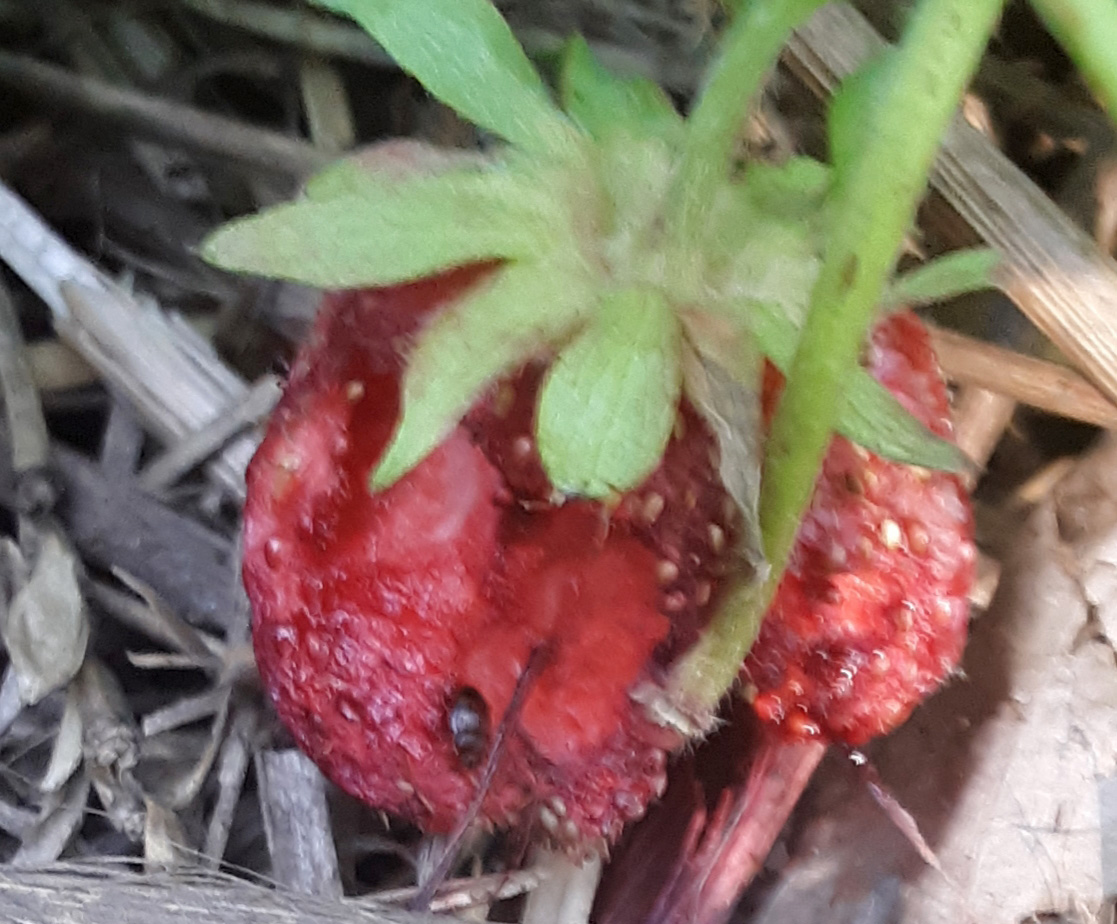West central Michigan small fruit report – July 14, 2020
Spotted wing Drosophila remains the major threat for blueberries and raspberries in the entire Michigan fruit growing regions. Maintaining an effective monitoring and control program is critical to prevent fruit damage.

Strawberry harvest is over and red raspberries started ripening. Some small quantities were harvested the past week. Sap beetles in strawberries started showing up, infesting fruit left in the field. In some fields, sap beetles started appearing in small numbers two weeks ago (see pictures). They are a serious pest if left uncontrolled. Sap beetles attack strawberries and raspberries and for those farms where both crops are side by side, sap beetles will stay in the field, moving from strawberries to raspberries.

Sap beetles overwinters in the surrounding woods. However, if they are not controlled at the end of the season, they will overwinter inside the field. It will take a field or crop rotation to get rid of this pest. Insecticides recommended for their control are Brigade, Danitol and Assail, among others. Please check the 2020 MSU Fruit Management Guide (Michigan State University Extension Bulletin E154) for more options and doses.
In raspberries, we observed the presence of spotted wing Drosophila (SWD) for the first time. SWD traps are already showing a substantial number of flies arriving in those fields. Be aware of its presence and start applying the recommended control measures. For recommended insecticides and doses please, check the 2020 MSU Fruit Management Guide.
Blueberries are in harvest. Early varieties, like Early Blue, Duke and Weymouth, among others, are hand-harvested at this time. The main concern right now is SWD. According to our monitoring network, there was a decline in the size of the SWD presence in blueberry fields during the past week. However, rains from the past several days lowered the daily temperatures and increased the environmental relative humidity (rH). These two factors are contributing to a new increase in the numbers of flies trapped in our network, especially in Allegan County.
Keep a tight monitoring program in fields to target SWD before it become a serios problem. Timing insecticide applications is critical. Please initiate applications as soon SWD is detected. At the beginning of the season, it is very important to target adults, eggs and larvae as well. Use a brad-spectrum insecticide like Lannate, Imidan, Brigade, etc. However, if you are already hand-harvesting, use a reduced risk insecticide like Assail, Entrust and Delegate. Please check the 2020 MSU Fruit Management Guide for other options and doses. In addition, do not forget to check MSU Enviroweather before programming your insecticide applications and select the best insecticides accordingly.
You may call your local MSU Extension office if you require assistance to develop your SWD management program.



 Print
Print Email
Email




